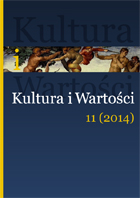
We kindly inform you that, as long as the subject affiliation of our 300.000+ articles is in progress, you might get unsufficient or no results on your third level or second level search. In this case, please broaden your search criteria.

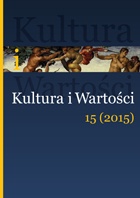
This paper has been written in the spirit of the history of intellectual culture, and it discusses the problems of the specific ideological culture of the eighteenth century. Contrary to the influential views held by many historians who stress the dominant process of secularization in the culture of the Enlightenment, the paper indicates that despite rationalist elements Christianity remained an integral element of the culture of this epoch. By virtue of analyses conducted on the grounds of scientific culture and education, therefore the most fundamental tools of popularization of the then culture, we are entitled even to state that Christians inspiration was not only an essential, but actually basic point of reference for eighteenth-century culture. Thus in the spirit of the so-called long dura- tion (longue durée), underlined by contemporary historiography, the so-called religious enlightenment, above all Christian Enlightenment is not only a cultural fact, but it does make up the mainstream Enlightenment.
More...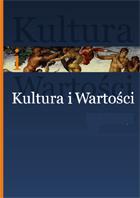
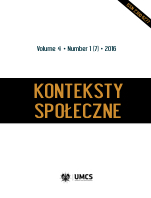
The article aims to analyse the role of social media in initiating and organising protest and revolutionary movements. Social media, particularly Facebook and Twitter, are widely believed to have been used by activists involved in the global wave of protests and revolutions after 2009. However, the assessment of their role wavers between technological determinism and minimising the impact of new technologies. Considering the current state of research, the author offers his answers to a number of questions: (1) To what extent and how are social media used in the processes of political communication, mobilisation and organisation of protest and revolutionary movements? (2) What is the relation between the old and the new media? (3) What is the relation between the online and offline dimension of collective action? (4) Why has the occupation of public space become the dominant tactic of protest and revolutionary movements in the age of social media?
More...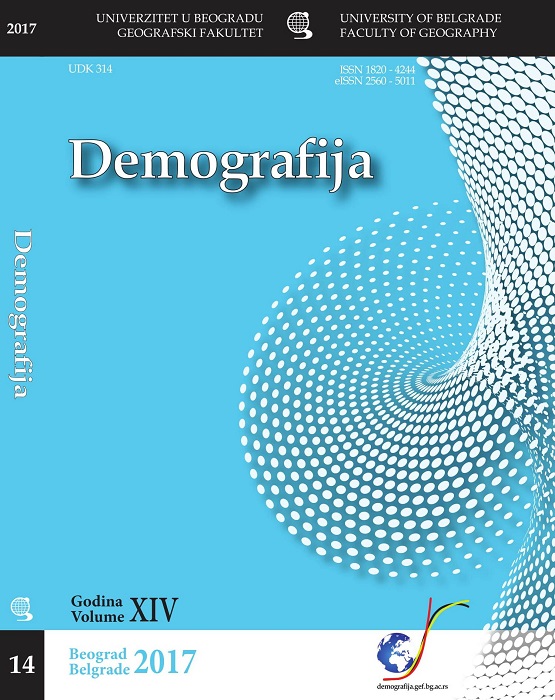
This paper explores complex motivational grounds of childbearing determined by the complexity of numerous psychological, social, economic and other factors. The aim is to show the evolution of reproductive intentions in the present social and economic moment, in co- dependence of the internal and external factors. The complexity of the subject entails taking into account a variety of motivational elements, directly and indirectly associated with the evolution of reproductive intentions. Prevalent social setting represents an important variable in positioning and evaluation of attitudes on childbearing. Unfavorable socio economic context in Serbia in the last twenty five years or so did not attribute to forming and promoting positive attitudes on reproduction. Economic crisis and financial deprivation reinforced the feeling of overall insecurity, having had its reflection on the emotional and social aspect of human relations.
More...
Perhaps the leaders of Europe, who have been trying for months to find a solution for the refugee crisis, should go to Trieste. The city has been called the ‘Lampedusa of the North-East’ and in the 1990s it welcomed hundreds of refugees from the former Yugoslavia. It therefore has experience of the ‘integrated reception model’, which is the exact opposite of the huge centres such as the one in Mineo (Sicily), unsurprisingly referred to as ‘warehouses’ by American experts, such as the director of the Migration Policy Institute in Washington, Demetrios Papademetriou. In contrast, the Trieste system relies on a network of accommodation in apartments and small structures. This is all down to the city administration that, in collaboration with local NGOs, has done a good job in interpreting and implementing the ‘spirit’ of the SPRAR (Protection System for Asylum Seekers and Refugees created by Italian Law 189/2002). This explains why today, according to the latest ICS-Caritas data, 70 per cent of reception places in Trieste are in private apartments or small structures. The main advantage of this is that is prevents the refugees from being seen as a perpetual emergency. Is this a role model for the rest of Europe? We’ll try answer to this question.
More...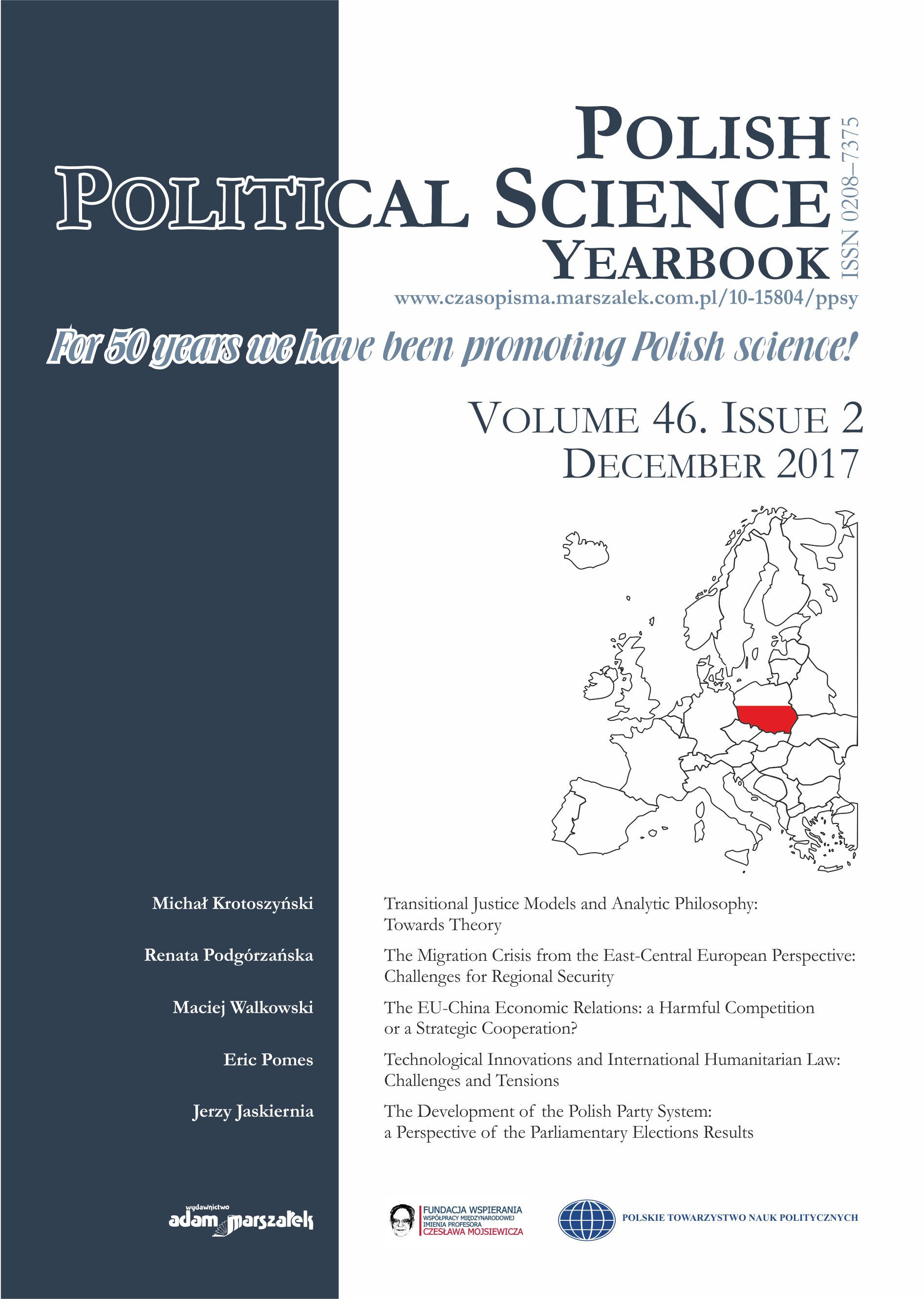
In the very beginning of this particular paper, an author is trying to determine and describe who Millennials actually are. Then, the basis of Millennials definition is analysing corporation’s activity over the past years regarding this age group. The main goal of the thesis is to bring their specific futures out and describe what corporations on Polish job market are doing to encourage them to work in their offices. Especially in Poland within the last years, it is observed that big multinational companies are paying special attention to Millennials and trying to hire them before competitors will do so. As a part of this paper, an author will describe corporate politics and practices on Thomson Reuters and BNY Mellon examples. Within this work, an author is also discussing key features and differences between this generation and Millennials parent’s generation. Additionally, there is a reference to corporate social responsibility concept and work-life balance issues.
More...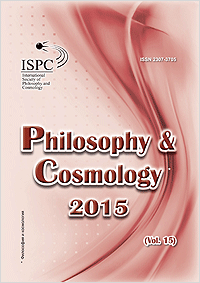
The article analyzes the peculiarities of the transformation of understanding yourself and the world a man travelling in space. These changes are described in the context of their educational, psychotherapeutic, functions. Observed phenomena, components, and develop ways of understanding themselves and the world, the cosmic identity of the man in General. Describes the main differences of human development, his understanding of himself and the world, in different types of relationships. Shows the interaction and mutual influence are included in the dialogue of the actors, comprehend themselves and the world available to them, the difficulties and possibilities of understanding on the transpersonal way of building relationships. The formation and development of the transpersonal relationship are viewed as a specific feature of human relations, with formed or emerging cosmic identity.
More...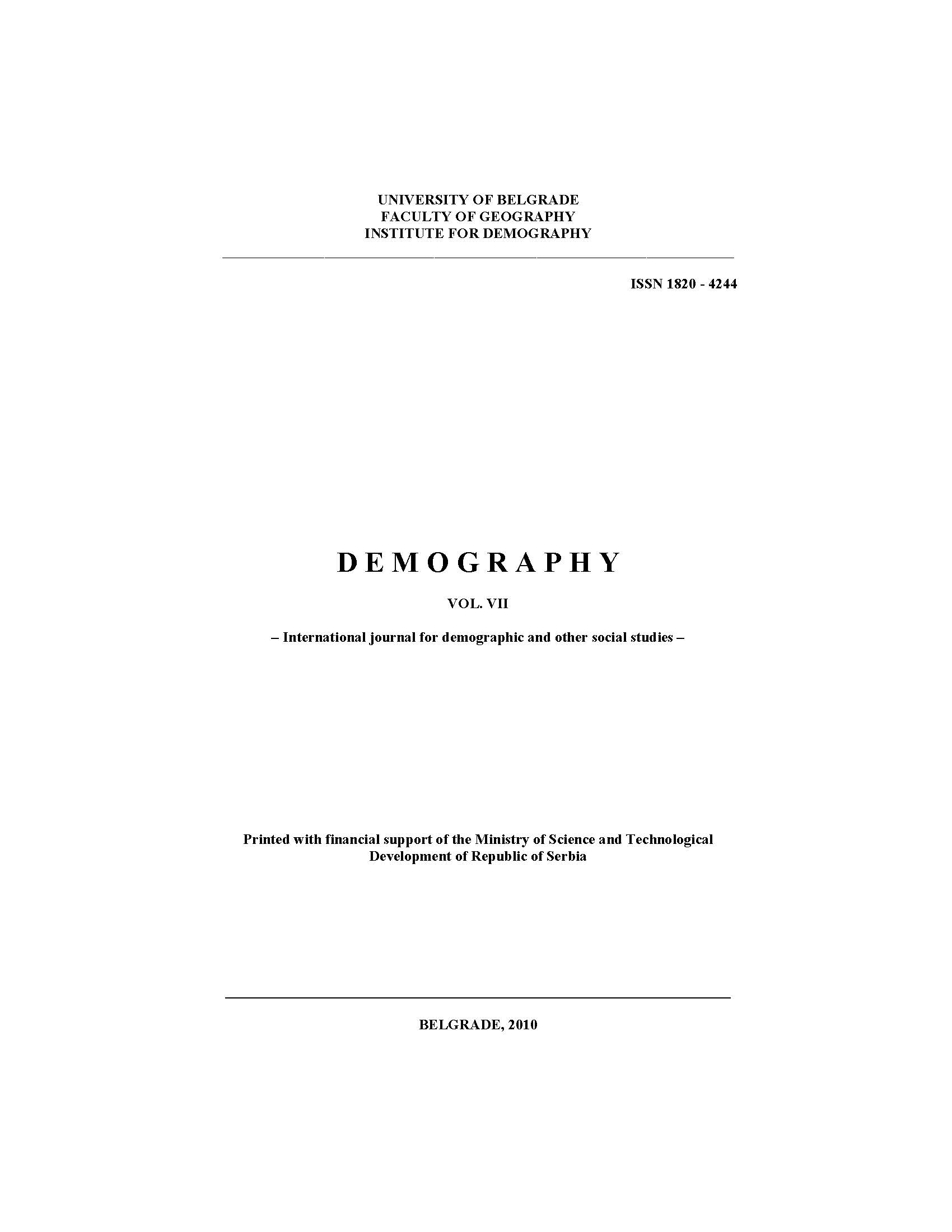
Educational structure of population is an important socio-economic indicator of local community and considerable social capital. Also, for the local society it is an account representative of the overall development prospects and trends of society’s globalization, especially in the time of transition of social systems in Serbia. This is primarily because educational structure of population is the basic determinant of the size and intensity of the social and territorial mobility, and their ability to accept new production processes, technologies as well as overall models and standards of living. That is why education has become inevitable, and by its spatial coverage, interactions and effects on the entire life of society, perhaps the most recognizable segment of man’s activities.
More...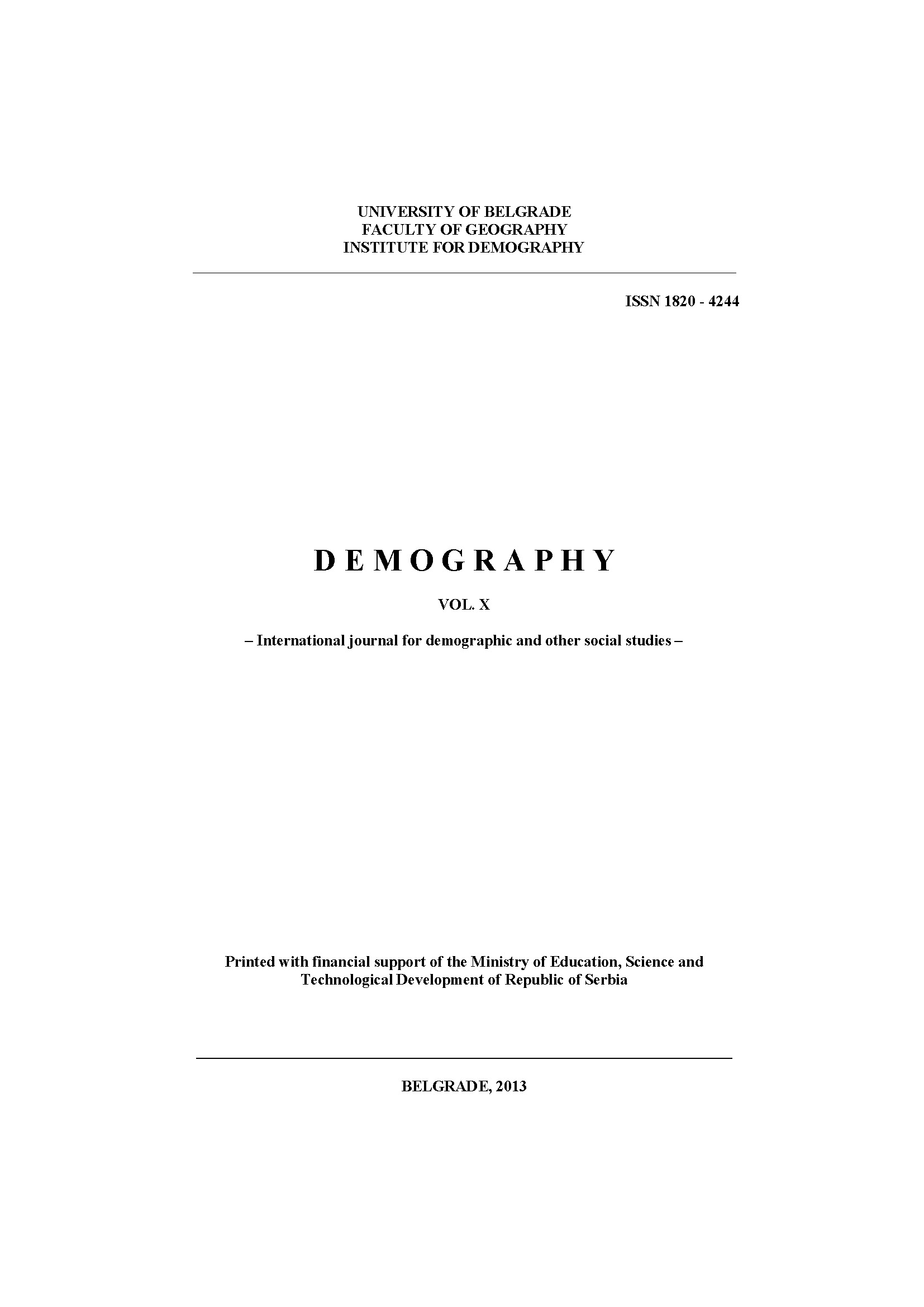
The district of Toplica is located in the southern part of Serbia, and includes historical and geographic area known as Toplica, which is located in the basins of the rivers Toplica and Kosanica. Tpolica space is limited to mountain ranges: Jastrebac from the north, Pozari and Kopaonik in the west, Djake, Arbanaska mountain, Vidojevica and Pasjaca, from the south and east is widely open to the South Morava valley. This administrative and administrative district covers four municipalities: Prokuplje, Kursumlija, Blace and Zitoradja In Prokuplje - the town is the county seat. District consists of 267 villages, of which four towns (municipal seats) and 263 villages. Most of the villages of the municipalities has Prokuplje (107), Kursumlija (90), Blace 40 and Zitoradja 30 settlements. The territorial development of the villages and municipalities, as well as the movement of population, households and population density in the county and municipalities affected natural, historical, cultural, economic and political factors, as well as geo-traffic position.
More...
The aim of this paper is to investigate fertility levels and changes in reproductive behavior of the population in urban and other settlements in Serbia. The fact is that there are significant differences in the level of actual fertility, depending on their place of residence. Therefore, the analysis included a long series of statistical data fertility by type of settlements for the period after the Second World War, with the idea to establish the extent to which different socio-historical circumstances and directions of development influenced the different reproductive behavior between studied populations. It started with the assumption that such a comparative approach research fertility can contribute to a better understanding of the many factors that affect the fertility level. Disproportions arising under certain regularities can be more clearly understood through an analysis of the achieved level of fertility among different population groups. What characterizes the analyzed time period is continuous decline in fertility. Today in Serbia (excluding Kosovo and Metohija) the total fertility rate is far below the level needed for generation replacement.
More...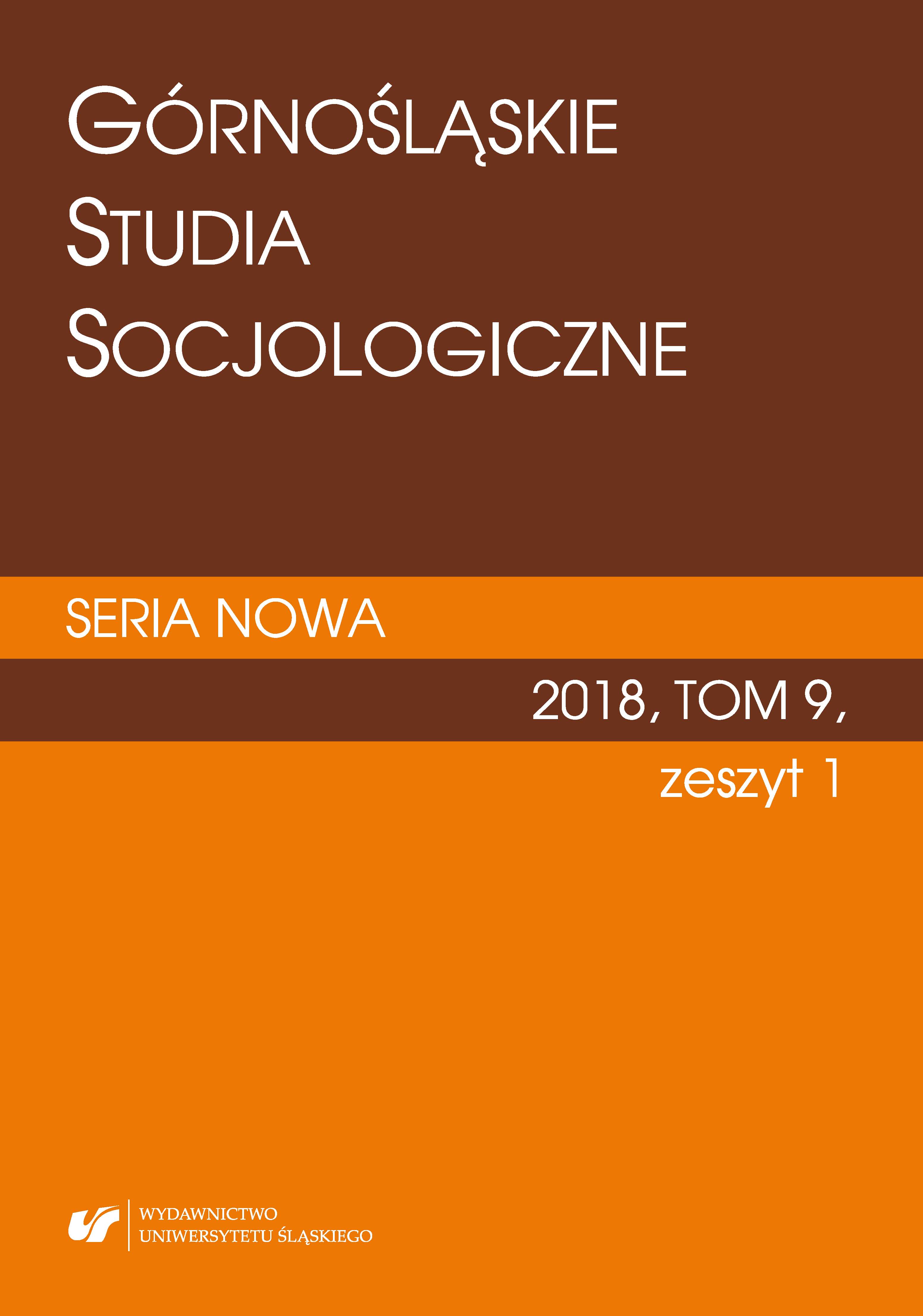
Objective considerations undertaken in this study lead to the conclusion that regardless of their position and responsibilities, a sociologist operating in different sectors of the Polish labor market has a significant advantage over graduates of other disciplines within the social sciences and humanities. The study of sociology provides strong foundations for the development of both social sensitivity and qualified methodological research. However, this potential should be strengthened by the recognition of the importance of humanities competence and ethical disposal in sociological education. It will allow both the employers and employees to appreciate the important role that sociologist have in the process of creating/maintaining the positive content of social ties. Although they do not have a formalized expression, these ties lead to the creation of a governance axio‑normative order. This article is an attempt at pointing out the inevitability of redefinition of the professional and social role of sociologists in Poland.
More...
In the following paper, the specifics of consumption have been illustrated as a socio‑economic phenomenon encompassing the areas of social and economic life that overlap each other. This gives rise to difficulties with the unequivocal determination of the boundaries between the fields of science that deal with such research. The pursuit of becoming familiar with the entire research concerned with consumption leads to the need to apply an interdisciplinary approach. The author of the following paper formulates thesis that the principal role in the interdisciplinary approach on consumption is played by a sociologist with regard to the competences that are associated with the possibility of combining various research methods within the framework of a single project. Theoretical foundations of the interdisciplinary approach have been presented along with examples of its application in research on consumption. Particular attention has been paid to the methodological challenges that sociologists face in research on micro and macro‑social dimensions of consumption.
More...
The simultaneous combining of studying with work fuses the two areas of human activity. The qualitative study of graduates from sociology and cultural studies of a selected university in Poland showed that the transfer of knowledge, skills and competences is not unidirectional: from education to the workplace only but also multidirectional and reciprocal: from work to education. This dual ways of transfer can reinforce the effectiveness of studying in a modern university. The outcome of these multilateral transfers are skills and tacit competences which can form a kind of a value added to the process of general education. This activity might also have some side effects such as: lack of time and vitality to study and delays in submissions at every stage of studying but especially in submitting the final thesis.
More...
The system transformation in Poland generated a range of changes — one of them was the issue of the importance and social recognition of education and de facto efforts made by Poles to gain better education. The discourse of the transformation period pointed to the importance of a higher degree in the context of attractive job offerts, high income, and “protection” against unemployment. The increasing mass of university graduates however, resulted in a diploma itself being no longer a gateway to an attractive professional career and income. The opening up of the European Union’s educational markets, media messages and politicians’ statements belittling the value of studies that do not guarantee work, demographic decline, and other factors caused a decreased interest in the studying the humanities and social sciences. This stimulated, and even forced universities to create an attractive educational offer, introduce new fields of study, and consider how to attract new students. This paper presents the results of quantitative empirical studies involving undergraduate students at the Institute of Sociology of the University of Wrocław: in the fields of Sociology, Social Work, and Sociology of Dispositional Groups. These studies enabled to identify main determinants underling young people’s decisions. While interests dominated among the determinants,an equally important role was played by issues connected with prospects of a professionalcareer, attractiveness of the field of study and possibilities of acquiring useful skills over the course of studies. Sometimes, however, the choice of the field of study at the Institute of Sociology of the University of Wrocław was determined by a negative result of recruitment for a different field of study.
More...
The following article presents the author’s own research along with other studies and analyses concerning the fates of sociology graduates and their opportunities in the labor market. It also addresses their perception in the labor market in Poland. Moreover, the author outlines model professional roles for graduates in sociology and social work.
More...
The main aim of this article is to examine the relationship between the profession “sociologist” and its potential precarization. The article presents an analysis of sociology as a profession, as well as the labor market of graduates in sociology based on data from selected Polish cities. In the second part of the article, the author raises the issues of professional identity, and in particular, tries to answer the question about the professional identity of sociology graduates. Given that precarity applies to people who, in order to survive, have to take up low‑quality jobs, which are unstable, temporary, underpaid, and have no prospect of promotion, no job security, and no employment contract — it is difficult to qualify a sociologist as a precarity profession.
More...
The goal of this article is to explore the place and role of sociological reflection in the analysis of industrial relations in Poland after 1989. The article begins with the discussion about the specificity of the multidisciplinary field of industrial relations (collective employment relations) research. Next, the main areas of interests of the Polish sociologists studying the problems of collective employment relations are analysed. In the final part of the article, with the reference to the division of sociological labour proposed by Michael Burawoy, the various professional roles of industrial relations researchers within the scope of academic sociology, critical sociology, professional sociology and policy‑oriented sociology are discussed.
More...
The article refers to the topic of a practical application of sociology of work andrelated social roles of sociologists of work. Applied sociology, which is sociological knowledge used for practical purposes, found its theoretical background in the work of sociologists such as Leon Petrażycki and Adam Podgórecki. Michael Burawoy and other representatives of public sociology seek to encourage the discipline to stand on the side of society and conduct research in a socially and politically engaged manner. Using the knowledge of sociologists working in social practice creates its added value, strengthens the position of sociology as a socially useful science. On the other hand, it exposes its representatives to the accusation of serving authority, subordination of scientific knowledge and its applications to the expectations of a sponsor or the requirements of employers. Involvement in public affairs is an opportunity to rebuild the importance of this sub-discipline in Poland after its crisis since 1989.
More...
In spite of the long tradition of research on occupational prestige, there is not a lot of data concerning the influence of gender on the prestige on the labor market. The research plan for my doctoral thesis was an atlempt at analyzing opinions and experiences of members of highly prestigious occupational groups. An analysis of the data obtained from interviews shows differences between the prestige of men and women in the labor market. Two important issues are the impact of family life on the career and gender division of work according to the traditional cultural roles. Nevertheless, the interviewees assumed that in their work environment was a meritocratic criterion of prestige rather than gender, which mattered for the individual’s prestige.
More...